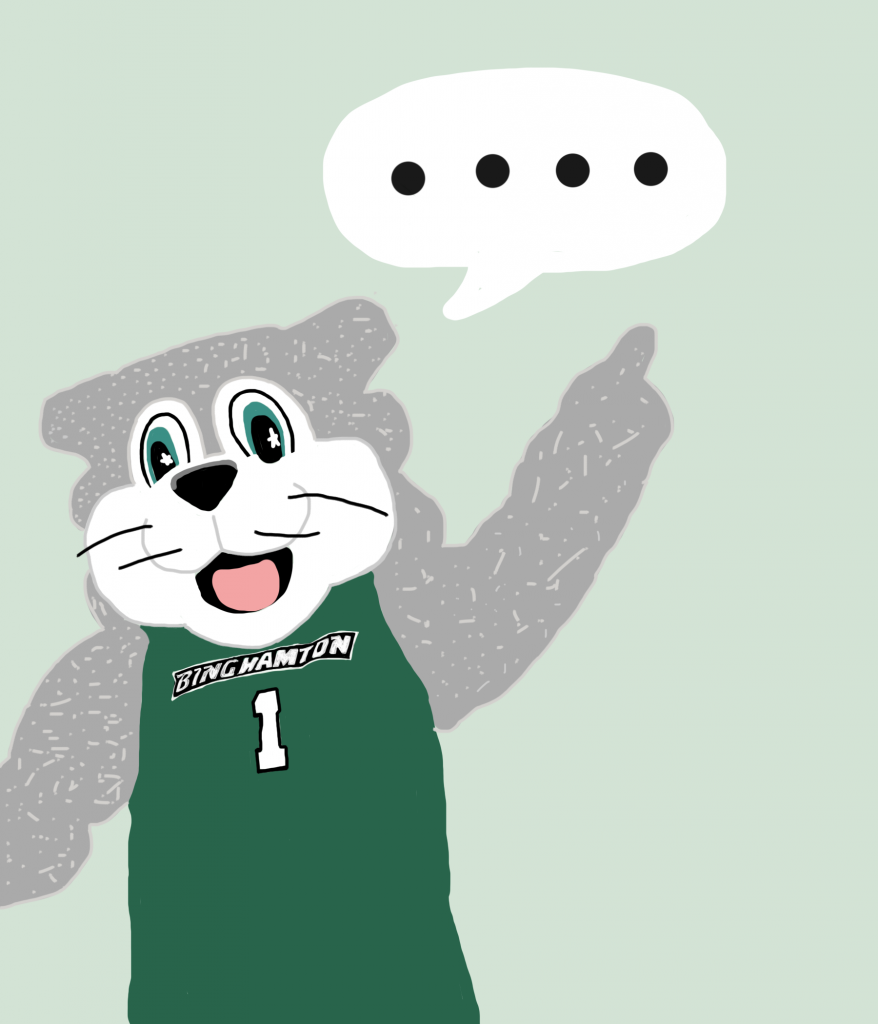Following a dip in first-year retention and graduation rates, Binghamton University will launch an A.I. chatbot to increase awareness about campus resources and draw more student input on University services.
The Dean of Students Office has partnered with EdSights — an educational technology corporation that develops chatbots for higher education applications — to jumpstart the program. The chatbot, which takes the name of Baxter the Bearcat, will be piloted only to new students, who will be given the choice to opt-in to its services. The program will be expanded to include additional students based on the pilot phase’s results.
Throughout the year, the Baxter chatbot will periodically reach out to students, asking about their college experience. According to Amanda Finch, the dean of students, it will utilize a large language model from OpenAI and draw from a database of information about the University to provide relevant responses to students.
“We can have an understanding of where students are and how their experiences are impactful or not impactful — positive and negative — and to hear a little bit of student feedback about some of those things,” Finch said. “The other part of this initiative is that we really want to help the students and provide resources and support and advocacy for the students that need us the most, and so this helps us to identify them.”
The initiative addresses a drop in the University’s first-year retention rate, from 92 percent for the class of 2023 to 88.6 percent for the class of 2026. The four-year graduation rate also declined between 2021 and 2023, dropping from 77.1 percent for 2021 graduates to 74.7 percent for 2023 graduates. The chatbot is intended to bring these numbers back up, foster an improved student experience and provide users with a greater sense of belonging on campus.
“Student success and well-being are our top priority, and as part of that mission, we are always looking for new ways to help our students thrive here at Binghamton,” Ryan Yarosh ‘02, MPA ‘09, the University’s senior director of media relations, wrote to Pipe Dream. “The Baxter Chatbot initiative offers a quick go-to for campus resources, answers to commonly asked questions and assistance of any kind to all first-year students — providing them another tool toward the goal of a smooth, stress-free and successful experience at Binghamton!”
Most publicly available language models, like ChatGPT, authorize a limited number of people and service providers to review conversations only under certain circumstances, like when investigating abuse or handling legal issues. Unlike these models, University staff will monitor all student conversations with “Baxter.” Students should not expect total privacy when using the service.
According to Finch, the software will refer students to University services “to support the students who need [them] the most” based on their conversations with the chatbot. These conversations will be shared with the appropriate University staff, who will reach out and provide help to those students.
EdSights said they will comply with federal law to ensure “only personnel responsible for helping students succeed” will have access to student information shared with the chatbot. “Data anonymization techniques” will be applied to protect individual student data.
While addressing the accuracy of large language models and their ability to spread false information or “hallucinate,” EdSights said the education-related focus of the chatbot combined with rigorous testing and other limits placed on the A.I. tool will “minimize the risk of hallucinations.” Common chatbot systems like those engineered by OpenAI and Google hallucinate three and 27 percent of the time, respectively.
The chatbot is expected to be piloted to new students in mid-October.



